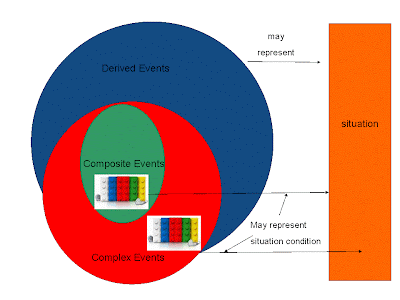2008-12-17T17:33:00.009+02:00
 Today I have participated in the local IBM championship in Backgammon (in Hebrew we use the Turkish name "shesh-besh"), however, my participation did not last very long, I lost the first game, and did not move to the second round, thus, returned to my office... At least the one who won the game over me is the technician in charge of the video conference equipment, so if one wants to conduct video conferences, make sure he likes you, since he is the only one in the lab who knows how to operate this simple equipment.
Today I have participated in the local IBM championship in Backgammon (in Hebrew we use the Turkish name "shesh-besh"), however, my participation did not last very long, I lost the first game, and did not move to the second round, thus, returned to my office... At least the one who won the game over me is the technician in charge of the video conference equipment, so if one wants to conduct video conferences, make sure he likes you, since he is the only one in the lab who knows how to operate this simple equipment.
Today I would like to write a little bit about "event derivation" - in one of the past postings I've used this illustration in order to explain relationships between terms. Why do we need all these terms? -- well - we don't, but they are "legacy" terms, thus it is a good to show the relations among them.
 When saying "derivation" -- let's compare it to two other types of derivations:
When saying "derivation" -- let's compare it to two other types of derivations:
- Inference -- where the input are: facts and inference rules, for example: fact 1 -- Jack is the father of Mike; fact 2 -- Mike is the fater of Alex; inference rule: X is grandfather of Y if X is father of Z and Z is father of Y. From this system we can infer that Jack is the grandfgather of Alex. This is a deductive inference, there are some other types of inferences, and can be obtained by logic programming, or inference rule engines.
- Data derivation --- although the term is broader --- if we'll take the relational database variation --- it takes a collection of relations as an input, apply query, and gets a relation as an output -- here there is no logical inference, but computation over data. Other variation of data derivation is a spreadsheet formula, typically performing some aggregation operator (sum, count, average...) on neigboring data in the table.
Inference: Facts X rules ----> Fact
Data derivation: Relations X Query ---> Relation
Event Derivation: Events X Event Derivations ---> Events
Now looking closely at event derivation. First -- why does event derivation occur ?
Event derivation may occur from various reasons -- while in mind it is closely related with pattern detection, it may also be associated with other event processing functions such as: enrichment and transformation.
Some examples:
Example 1:
Input event: Order that consists of the attributes (not including the header) -- customer, item, quantity.
Functionality type: enrichment -- add attributes as: customer-type, customer-reliability-rank to the order.
Output event: the enriched event. In this case the derived event is identical to the event that has been created by the main function (enrichment) and the derivation is just copying.
Output event occurs immediately when function is done
Example 2:
Input event: Order (same as first example)
Functionality: Aggregation -- quantity by item.
Output event: Item-Demand: Item, Quantity. Multiple events - one for each item.
Output event occurs at the end of the context ("deferred").
comment: here a composite event is being accumulated, and at the end of the context is decomposed to individual events.
Example 3:
Input events: Order (same as first), Item-Demand (Output of example 2).
Functionality: Detect Pattern, the pattern is: Quantity of a single order > 2/3 from quantity of the same Item.
Output event: Dominant-Order: Order-Id (from header), Item, Dominance Ratio = (Order.Quantity / Item. Quantity)
Output event occurs as soon as detected.
Example 4:
Input events: Temperature-Reading (every 1 minute).
Functionality: Aggregator/collector -- collects all reading of a certain hour and creates one event.
Output event: Every hour -- Composite event that consists of 60 raw events.
These are some examples. More formal definition of event derivation - later.
Source...